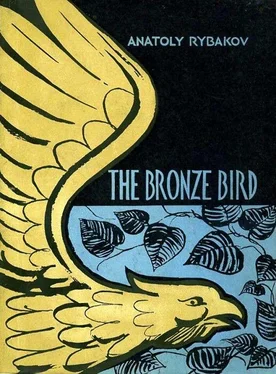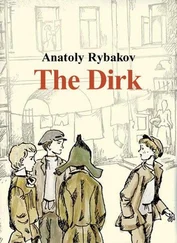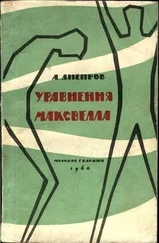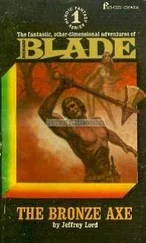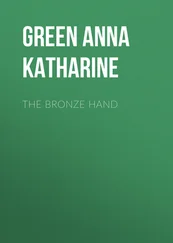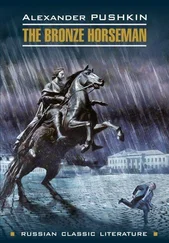Anatoly Rybakov - THE BRONZE BIRD
Здесь есть возможность читать онлайн «Anatoly Rybakov - THE BRONZE BIRD» весь текст электронной книги совершенно бесплатно (целиком полную версию без сокращений). В некоторых случаях можно слушать аудио, скачать через торрент в формате fb2 и присутствует краткое содержание. Город: Moscow, Год выпуска: 1956, Издательство: Foreign Languages Publishing House, Жанр: Детские приключения, Детектив, Исторические приключения, на английском языке. Описание произведения, (предисловие) а так же отзывы посетителей доступны на портале библиотеки ЛибКат.
- Название:THE BRONZE BIRD
- Автор:
- Издательство:Foreign Languages Publishing House
- Жанр:
- Год:1956
- Город:Moscow
- ISBN:нет данных
- Рейтинг книги:5 / 5. Голосов: 1
-
Избранное:Добавить в избранное
- Отзывы:
-
Ваша оценка:
- 100
- 1
- 2
- 3
- 4
- 5
THE BRONZE BIRD: краткое содержание, описание и аннотация
Предлагаем к чтению аннотацию, описание, краткое содержание или предисловие (зависит от того, что написал сам автор книги «THE BRONZE BIRD»). Если вы не нашли необходимую информацию о книге — напишите в комментариях, мы постараемся отыскать её.
THE BRONZE BIRD — читать онлайн бесплатно полную книгу (весь текст) целиком
Ниже представлен текст книги, разбитый по страницам. Система сохранения места последней прочитанной страницы, позволяет с удобством читать онлайн бесплатно книгу «THE BRONZE BIRD», без необходимости каждый раз заново искать на чём Вы остановились. Поставьте закладку, и сможете в любой момент перейти на страницу, на которой закончили чтение.
Интервал:
Закладка:
A tombstone came into view. There was so much moss and grass on it that few people would have guessed it was a tombstone. When the soil around it was cleared away, its outlines emerged quite distinctly.
"They're desecrating a grave," Yerofeyev said. "It's devil's work."
One of the peasants laughed:
"The grave isn't where it should be. Its place is in the cemetery, but look where it's got to."
When the hole was wide enough, the tombstone was moved aside with crowbars. There was a small recess beneath it.
The crowd closed in around the hole. Everybody wanted to see what it contained.
"Step back, citizens," the chairman said, "we'll show it to everybody."
Just then the "countess" and Karagayev approached the rock. They came up unnoticed, for attention was riveted to the vault. Only Misha, the boatman and Yerofeyev kept their eyes fixed on them. From the expression on Yerofeyev's face, it was evident that he had recognized the young count the moment he had seen him.
In the recess beneath the tombstone was a black metal casket. Boris Sergeyevich lifted it. It was locked. He broke the lock and opened the casket. In it lay a brooch strewn with shining stones in the centre of which sparkled a magnificent diamond... Boris Sergeyevich took the brooch out of the casket and, holding it aloft, showed it to the crowd.
Suddenly, pushing his way through the crowd, Karagayev went up to Boris Sergeyevich.
The "countess" followed him.
"That casket belongs to me," the "countess" said.
"Possibly," Boris Sergeyevich replied in a courteous tone of voice, but he did not give her the casket.
"Give it to me," the "countess" said, stretching out her hand.
"I cannot," Boris Sergeyevich said. "It will be handed over to the proper authorities and you can apply to them."
What people least expected happened at that moment. Karagayev snatched the casket out of Boris Sergeyevich's hands.
It was done so insolently and suddenly that everybody was taken aback and stood stock-still.
Boris Sergeyevich grew pale and took a step towards Karagayev.
"What is the meaning of this? Give it back to me at once!"
Karagayev whipped a pistol out of his pocket. The crowd drew back. With the pistol in one hand and the casket in the other, Karagayev slowly retreated to the base of the rock. When he reached level ground he was caught unawares by a curt:
"Drop that gun!"
He wheeled around. Behind him stood the investigator and two Red Army soldiers. With the soldiers was Nikolai Ribalin. He looked at Misha and his face broke into the friendly smile Misha knew so well.
Chapter 69
RESULTS AND OMISSIONS
Every day the train brought fresh groups of children bound for the labour commune. Tools and various other equipment were carted from the station. The members of the commune were busy repairing the house, building sheds and installing machinery in the workshops.
For the troop the time was fast approaching when they had to leave. It was August and the leaves on the trees were turning gold, the nights were growing chillier and it was already too cold to sleep out of doors in tents.
Besides, they had, in effect, done all they had set out to do. Nikolai Ribalin had been released. The riddle of the bronze bird had been solved. The manor and the estate now belonged to the labour commune. Twelve of the villagers had been taught to read and write. A Young Pioneer detachment had been organized in the village.
The youngsters spent their last days in the camp helping the commune. Kit was seldom seen outside the kitchen. But everybody knew it was time to leave. The members of the commune were replanning the orchard. Out of tact they did not say that the troop's tents were in their way, but the troop knew it. Of course, they could easily move their tents somewhere else, but the feeling was that if they had to leave the old site it would be best to go away altogether.
They were sorry to part with the manor and estate, the village, the commune.
"Be sure to come again next year," Nikolai Ribalin said, smiling. "I'll help you with your carpentering. We'll build a new club, a capital building, so that it can be used in winter as well."
Yerofeyev sighed.
"You can't deny that the children have done quite a bit of work. We are grateful to you for your assistance. And you have helped to clear an innocent man."
But his little eyes roved with guarded suspicion and everybody doubted the sincerity of his words.
The artist-anarchist announced that he, too, was going to Moscow.
"There is more scope for a gifted person," he said, "more opportunities. Theatres, sign-boards, facades. Look, boys, if there is anything that needs to be painted in your school, I'd be only too glad to oblige."
Misha made haste to assure him that there was no such need.
The troop was due to leave for Moscow by the evening train. Everything-the tents, the blankets and all personal effects-was already packed. Before leaving they lit a big farewell camp-fire.
The members of the commune with Boris Sergeyevich at their head and all the village children came to the camp-fire.
Misha opened the meeting with the words:
"This is our last camp-fire. It is our custom to sum up the results of our work. But we shall say nothing of what we have done. On the contrary, we shall speak of what we have left undone. That will be useful for those who are staying behind. Who wants to speak?"
Slava raised his hand.
"We organized a detachment in the village," he said. "But only thirty-two children joined it. That is too little. All the children in the village must become Young Pioneers."
"We did a poor job abolishing illiteracy," Zina Kruglova said. "We only taught twelve people. Our aim was to wipe out illiteracy in the whole village."
"There is no hospital in the village," the Bleater said, "and when people fall ill they have to go to the neighbouring village. That isn't right. Medicine is a powerful weapon in the fight against religious prejudices."
"Our international ties are not much," declared Igor and Seva. "We only sent two letters to Young Pioneers in Germany. Meanwhile, fascism is rearing its head. We have to give this our most serious attention."
When the speeches were over, Misha said:
"It was right to bring up all those points. We hope that the members of the commune will take up where we stopped and do the work better than we could have done."
In behalf of the labour commune, Boris Sergeyevich assured the troop that all the unfinished work would be finished by the commune.
"Well, that is all," Misha announced. "We can go now."
But Genka suddenly yelled:
"No, that isn't all! There's something that needs to be finished!"'
"What?"
"Remember, Misha recited his poem to us. On the whole, the verses weren't bad. But the last two lines were missing. I've written them."
"Come on, read them," Misha said, "only be quick about it."
He felt ashamed when Genka mentioned the poem. He had hoped that it was forgotten.
"Well, then," Genka said, assuming a theatrical pose. "The last stanza of Misha's poem read:
The struggle has only begun.
The hammer to us has been -passed.
And the whole wide world in chains is enmeshed.
That is where it stopped. I suggest ending it like this:
But we are strong and our spirit is young.
So, forward, comrades, follow me.
And he stretched out his arm, calling upon everybody to follow him.
But nobody liked the lines.
"Why should we follow you?" some said. "What have you done that we should all follow you?"
"Oh, well," Misha said, "we'll try and finish the poem in Moscow. I mean, if anybody wants to. In the meantime, let's hurry or we'll miss our train."
Читать дальшеИнтервал:
Закладка:
Похожие книги на «THE BRONZE BIRD»
Представляем Вашему вниманию похожие книги на «THE BRONZE BIRD» списком для выбора. Мы отобрали схожую по названию и смыслу литературу в надежде предоставить читателям больше вариантов отыскать новые, интересные, ещё непрочитанные произведения.
Обсуждение, отзывы о книге «THE BRONZE BIRD» и просто собственные мнения читателей. Оставьте ваши комментарии, напишите, что Вы думаете о произведении, его смысле или главных героях. Укажите что конкретно понравилось, а что нет, и почему Вы так считаете.
